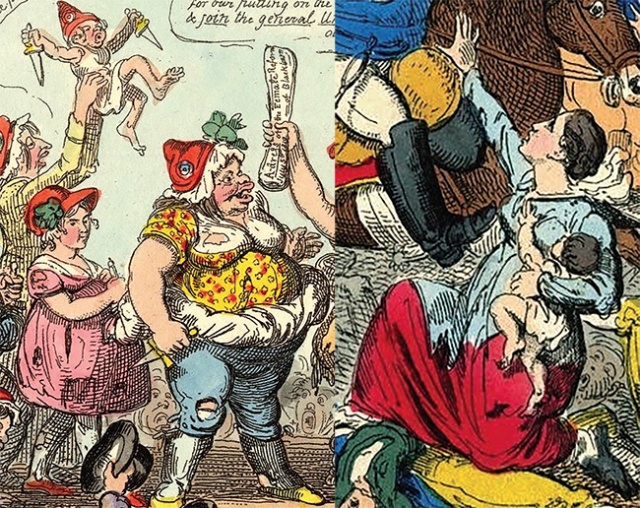Polychronicon 176: Peterloo, 1819–2019
Teaching History feature

Polychronicon is a regular feature in Teaching History helping school history teachers to update their subject knowledge, with special emphasis on recent historiography and changing interpretations. See all Polychronicons
On Monday 16 August 1819 troops under the authority of the Lancashire and Cheshire magistrates attacked and dispersed a rally of some 50,000 radical reformers on St Peter’s Field, Manchester.
Twenty minutes later some 650 people had been injured, many by sabres, many of them women, and eighteen lay dead or mortally wounded. Independent witnesses were horrified, for there had not been any disturbance to provoke such an attack; but the authorities insisted that a rebellion had been averted.
Waterloo, four years earlier, had seen the final victory of the European allies over Napoleon and imperial France; now, at ‘Peterloo’, British troops were turned against their own people. There were Waterloo veterans present on both sides; one of them, the reformer John Lees of Oldham, died later of his injuries and was the subject of a high-profile ten-day inquest. The trial of the speaker, Henry Hunt, and nine others followed in 1820. Only half of them were convicted, and that on only one of many charges. The Six Acts that followed suppressed most forms of public political dissent. Nevertheless, thanks to the use of troops against women, Peterloo was a propaganda disaster for the government, and one they could never risk repeating...
This resource is FREE for Secondary HA Members.
Non HA Members can get instant access for £2.49

